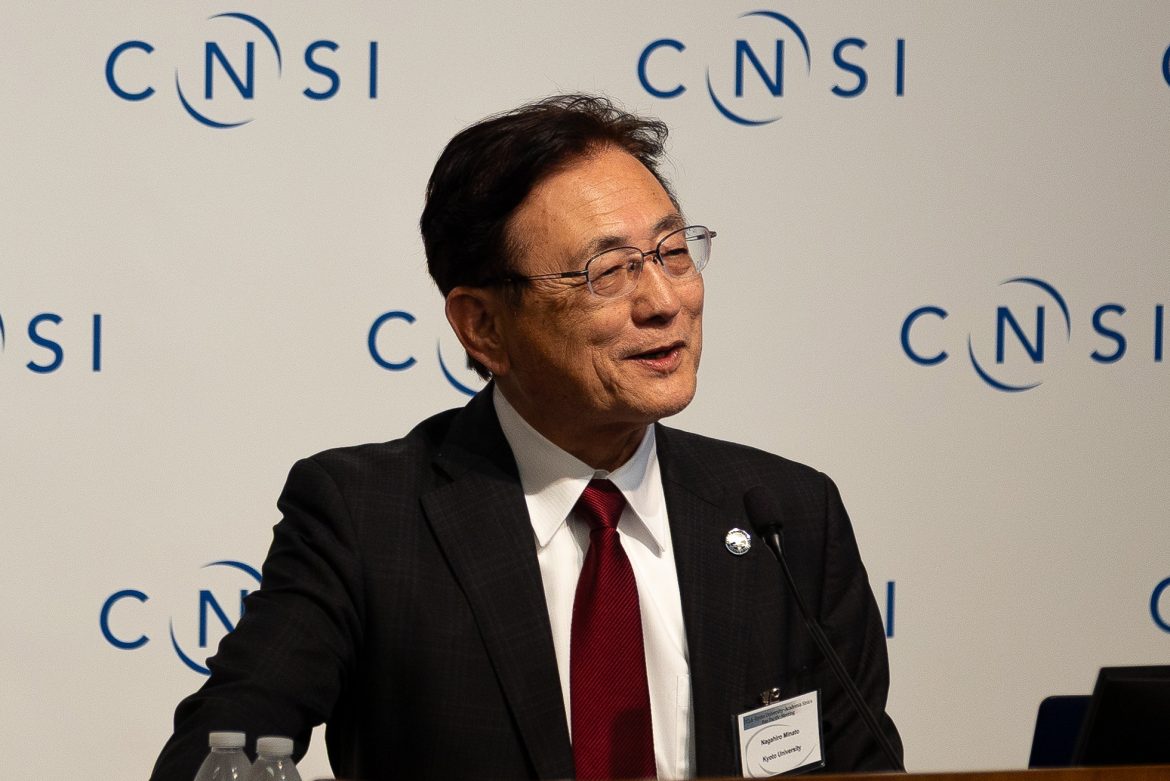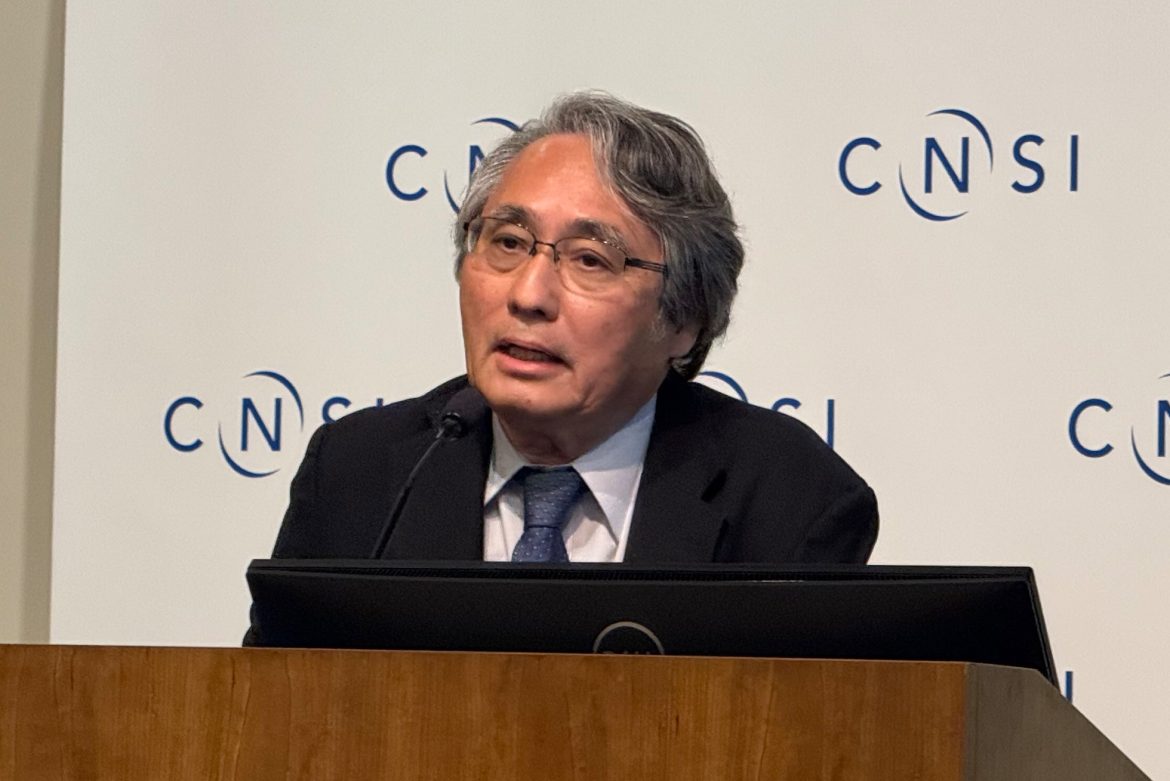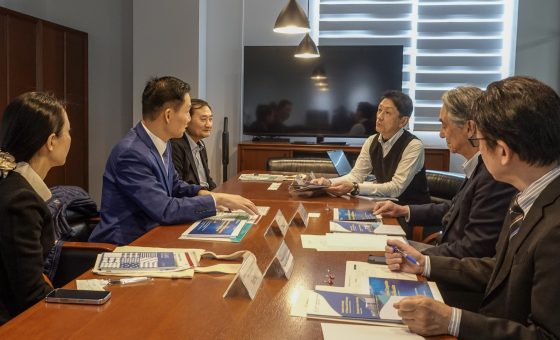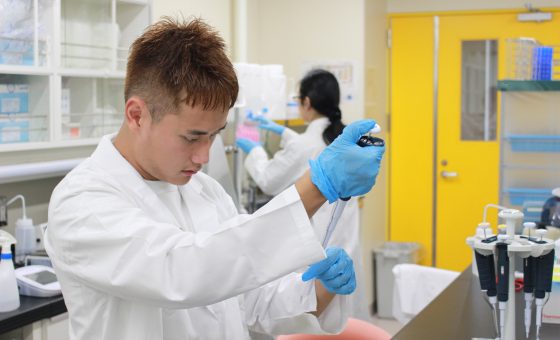iCeMS Co-Hosts the Pan Pacific Meeting “New Developments in Biomedical Sciences”
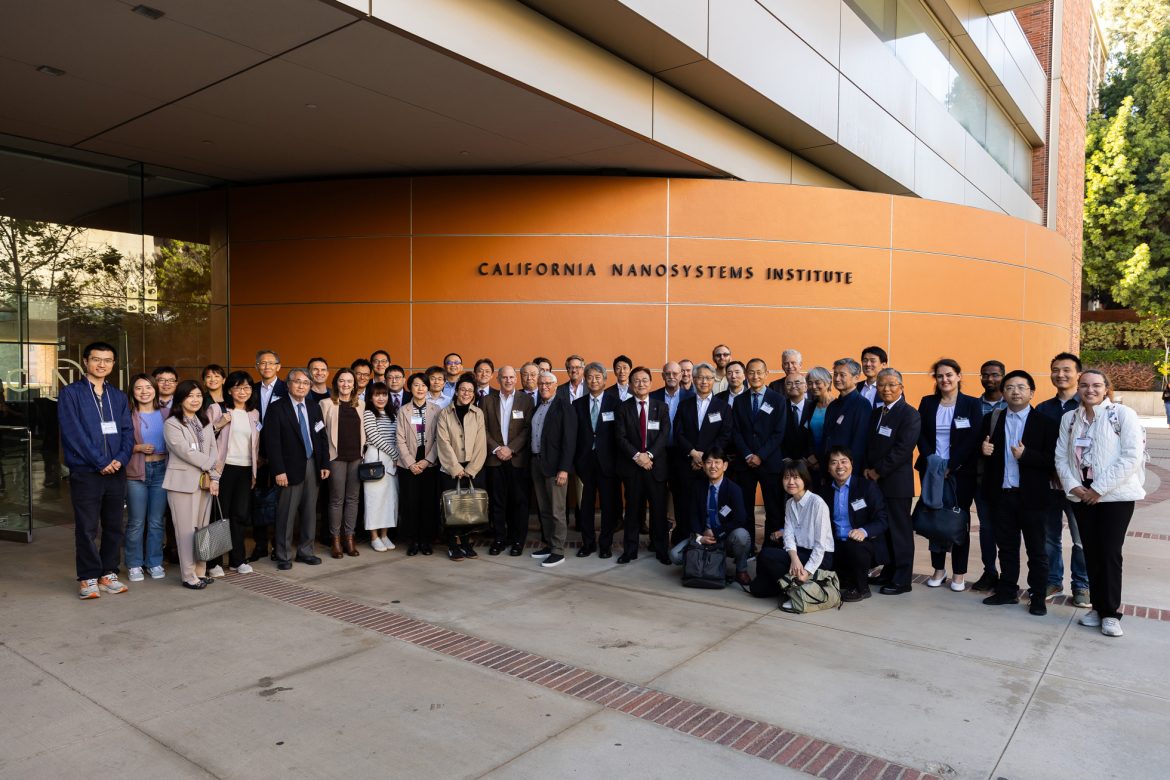
The UCLA–Kyoto University–Academia Sinica Pan Pacific Meeting, “New Developments in Biomedical Sciences”, was held from May 14 to 16, 2025, at the California NanoSystems Institute (CNSI), UCLA. The symposium was organized under the joint leadership of Prof Fuyuhiko Tamanoi of iCeMS and his counterparts at UCLA (Prof Jerome Zack, Prof Jeff Miller) as well as at Academia Sinica (Prof Tzu-Ching Meng), Kyoto University International Strategy Office (Prof Kaoru Kitajima) who served together as the members of the organizing committee. Co-hosted by iCeMS, UCLA/CNSI, Academia Sinica, the Japan Society for the Promotion of Science (JSPS) and the UCLA Japan Center, the symposium brought together researchers from the Pacific Rim to discuss recent advances in tumor immunology, systems biology, chemical biology, and radiotherapy.
Day 1 (May 14): Tumor Immunology
The symposium opened with remarks from representatives of the co-hosting institutions. As one of the main organizers, Prof Jeff F Miller (Director, CNSI, UCLA) initiated the event, followed by Dr Roger Wakimoto, Vice Chancellor for Research and Creative Activities, Dr James C Liao, President of Academia Sinica and Dr Nagahiro Minato, President of Kyoto University.
The first keynote lecture was delivered by the 2018 Nobel Prize laureate Prof Tasuku Honjo (Kyoto University IAS) presenting “30 Years’ Journey of my PD-1 Cancer Immunotherapy.” The second keynote lecture was given by Prof Owen Witte (UCLA) who presented a talk entitled “Cancer Therapy: Target, Modality, and Timing.”
The day proceeded with a session on Cells and Organs of the Immune System, followed by a session on Immune Therapy (Checkpoints, T-cell engineering), and concluded with a session on Chemical Biology. In the final session, iCeMS Director Prof Motonari Uesugi presented his lab’s work on small molecules that potentiate antitumor immunity.
The day concluded with a reception at CNSI, encouraging informal discussions among researchers.
Day 2 (May 15): Systems, Network Cellular Responses Chemistry
Opening remarks were delivered by Prof Jerome Zack (Professor and Chair, Dept. of MIMG, UCLA, Organizing member). The scientific program began with a session on Systems Biology, which was followed by a session on Tumor Biology and Cell Death, and later by another session on Systems Biology.
From iCeMS, Prof Jun Suzuki presented on mechanisms of targeted cell engulfment. He also chaired this session.
The day concluded with the third keynote lecture by Prof Shinya Yamanaka (CiRA, Kyoto University), who received the Nobel Prize in Physiology or Medicine in 2012. He gave a lecture to the packed house with a title, “Recent Progress in iPS Cell Research and Application.”
Day 3 (May 16): Advances in Radiotherapy
The final day emphasized innovations in radiotherapy and international cooperation. The morning began with a presentation by JSPS San Francisco Office, during which Dr Yusaku Nakabeppu outlined various JSPS programs. This was followed by the session on Radiation Therapy & Theranostics, where Prof Fuyuhiko Tamanoi described the use of mesoporous silica nanoparticles in enhancing radiation-based cancer therapies. He also chaired this session. Subsequenty, the session featured Radiology, AI, Data Science, and Future Frontiers, where Prof Ganesh Pandian Namasivayam introduced his team’s work on mitochondrial gene switches for cellular rejuvenation and immunotherapy.
The symposium concluded with a shared recognition of the importance of continued collaboration across the Pacific Rim to advance science together. Participants emphasized the value of sustained academic exchange, joint research, and open dialogue as vital drivers of innovation in biomedical science.
